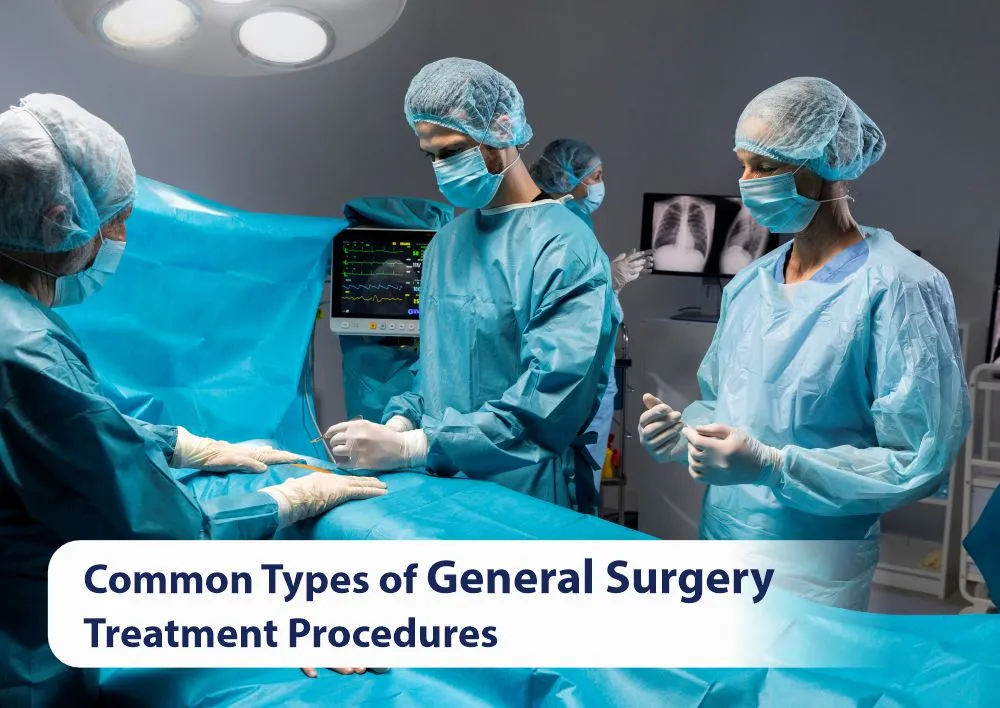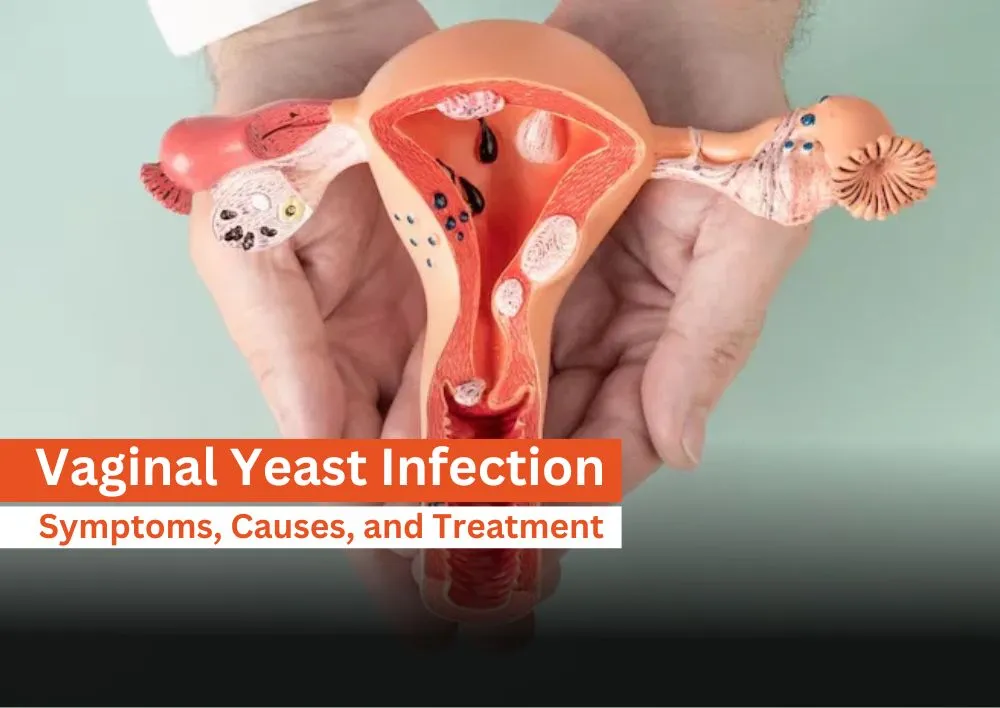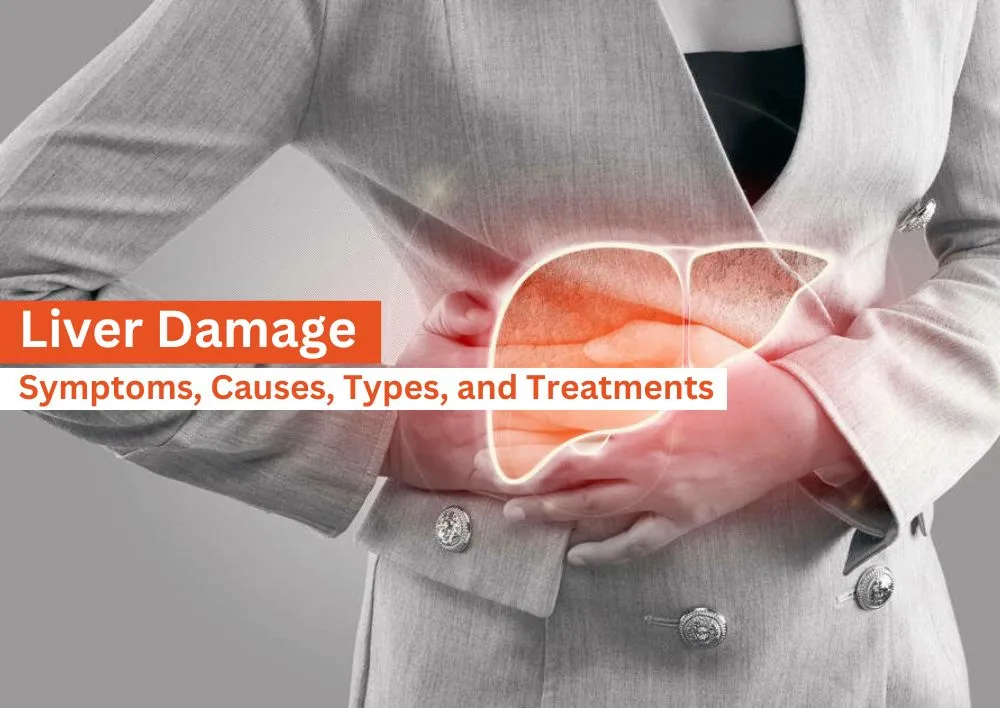Common Types of General Surgery Treatment Procedures
General surgery involves a wide range of surgical procedures. These procedures aim to treat various conditions affecting the organs and tissues of the body. Miracles Apollo Cradle/ Spectra is the best general surgery treatment hospital in Gurgaon that offers a variety of surgical procedures including hernia repair, appendectomy, gallbladder removal, piles surgery, varicose veins surgery, circumcision, and more. Their team of highly experienced surgeons performs both minimally invasive surgeries and traditional open surgery for various conditions.
In this blog post, we will delve deep into what general surgery is, what general surgeons treat, and some of the common types of general surgery treatment procedures.
General surgery is a broad medical specialty. It includes the diagnosis, treatment, and postoperative care of a variety of conditions affecting the abdomen, gastrointestinal tract, and other organs. General surgeons have extensive knowledge and skills in managing a range of issues, from minor procedures to complex surgeries.
What Does a General Surgeon Treat?
-
Alimentary Tract: Our alimentary tract includes the esophagus, stomach, small intestine, large intestine, and related organs like the liver, gallbladder, pancreas, and bile ducts. General surgeons diagnose and treat conditions like appendicitis, hernias, ulcers, inflammatory bowel disease, colon cancer, and more.
-
Endocrine system: Our endocrine system includes the thyroid gland and parathyroid glands. General surgeons perform thyroid surgery, parathyroid surgery, and other procedures related to these glands.
-
Breast: General surgeons perform both diagnostic and therapeutic procedures related to breast health. The procedures include biopsies, lumpectomies, mastectomies, and breast reconstruction.
-
Skin and Soft Tissue: General surgeons address a variety of skin and soft tissue conditions like abscesses, wounds, and tumors.
-
Trauma: General surgeons are often the first point of contact for patients with soft tissue or abdominal injuries upheld from accidents or other events.
What Types of Procedures Do General Surgeons Perform?
-
Open Surgery: This involves traditional surgical techniques with larger incisions to analyze and treat internal organs.
-
Minimally Invasive Surgery (MIS): This involves using laparoscopes and other specialized instruments through smaller incisions for less invasive procedures. This approach offers various potential benefits such as faster recovery times, shorter hospital stays, less pain, and smaller scars.
-
Endoscopic procedures: These involve using instruments inserted through natural body openings to diagnose and treat various conditions.
Common General Surgery Treatment Procedures
General Surgery encompasses a wider range of treatment procedures. Some of the common procedures are:
-
Hernia Repair: Hernias is a common condition. It occurs when an organ or tissue comes out through a weak spot in the surrounding muscle or connective tissue. Hernia repair is a general surgery procedure. It involves pushing the bulging organ or tissue back into place and supporting the weakened area with mesh. The hernia repair surgery helps relieve pain, prevent complications, and restore the integrity of the affected muscle or tissue.
-
Appendix Removal (Appendectomy): Appendicitis, an inflammation of the appendix, often requires surgery for removal. An appendectomy is a common general surgery procedure to prevent the appendix from breaking. Because a broken appendix can lead to serious infections. General Surgeons use minimally invasive techniques, such as laparoscopy, to remove the inflamed appendix and promote a faster recovery.
-
Piles: Piles, also known as hemorrhoids, are swollen and inflamed blood vessels in the rectum or anus. They can cause discomfort and pain. General Surgeons perform laser hemorrhoidectomy, as a minimally invasive option for piles removal. The laser surgery involves minimal tissue disruption, leading to less bleeding and potentially shorter hospital stays.
-
Gallbladder Removal (Cholecystectomy): Gallbladder is an organ that is responsible for storing bile and preventing complications arising from gallstones. Gallbladder removal is a common procedure for patients with gallstones or other gallbladder-related issues. Cholecystectomy (removal of the gallbladder) can be performed through open surgery or laparoscopy.
-
Fissure and Fistula Removal: Anal fissures and fistulas are conditions that affect the anus and rectum. General surgery may be used to treat severe cases. Fissure removal involves repairing tears in the anal lining, while fistula removal aims to close abnormal channels between the rectum and its surrounding tissues. These procedures help in relieving pain and preventing recurrent infections.
-
Pilonidal Sinus Surgery: Pilonidal sinus is a condition indicated by the development of cysts or pimples near the tailbone. Laser pilonidal sinus surgery is important to remove the sinus tracts, prevent recurrence, and promote healing.
-
Varicose Vein Treatment: Varicose veins also known as spider veins, are swollen, twisted veins that can cause discomfort and aesthetic problems. General surgery offers several treatment options such as vein ligation, vein stripping, and minimally invasive procedures such as endovenous laser treatment (EVLT) or sclerotherapy, aimed to improve blood circulation and relieve symptoms associated with varicose veins.
-
Circumcision: Circumcision is a surgical procedure involving the removal of the foreskin covering the head of the penis. This procedure is performed for cultural, religious, or medical reasons. General surgeons may use various techniques such as stapler, to perform circumcisions safely.
-
Thyroidectomy: Thyroidectomy is the surgical removal of the thyroid gland. This gland is located in the neck and regulates metabolism. The thyroid removal procedure is generally performed to treat thyroid cancer, enlarged thyroid, or hyperthyroidism. The general surgeon carefully removes all or part of the thyroid, depending on the specific medical condition.
-
Breast Surgery: General surgeons play an important role in breast surgery. They typically perform surgical procedures such as lumpectomy (removal of a tumor and surrounding tissue) and mastectomy (complete removal of the breast). These breast surgeries are typically performed to treat breast cancer or other conditions affecting the breast tissue.
-
Gastric Bypass Surgery: Gastric bypass is a weight loss surgery. It involves creating a small stomach pouch and redirecting the digestive tract. Gastric bypass surgery proves beneficial for individuals grappling with severe obesity, aiding weight loss by restricting food intake and altering nutrient absorption. General surgeons collaborate with other doctors to handle the complex needs of patients undergoing gastric bypass surgery.
Conclusion:
In conclusion, General surgery covers a wide range of procedures to diagnose, treat, and care for various conditions in the body. General surgeons are experts in surgeries involving the abdomen, digestive tract, endocrine system, breasts, skin, and more. They perform different types of surgeries, from traditional open procedures to minimally invasive techniques. Common treatments include hernia repair, appendix removal, piles removal, gallbladder removal, and surgeries for conditions like hernia, appendix, gallstones, varicose veins, circumcision, thyroid issues, breast problems, and gastric bypass for weight loss. General surgery plays a crucial role in maintaining overall health and addressing a variety of medical issues.
If one of the surgical procedures is relevant to you, schedule a consultation with the best general surgeon near you to learn more about the general surgery procedures that can treat your medical needs. General surgeons in Gurgaon at Miracles Healthcare are dedicated to excellent service and help you understand every step of the surgical process. Miracles Healthcare offers comprehensive healthcare services through multiple facilities: Miracles Apollo Cradle, Miracles Apollo Cradle/Spectra, Miracles Fertility & IVF Clinic, and Miracles Mediclinic. Our facilities are located in Sec 14, Sec 56, and Sec 82, making daily healthcare more convenient for the people of Gurgaon.





_in_Pregnancy.webp)






Was the information useful?
0 0